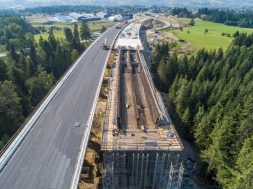With the Union Budget for the financial year 2012-2013 set to be presented in Parliament on 16 March, Indian industry has drawn up a wish-list for Finance Minister Pranab Mukherjee
On 16th of March, when the Finance Minister will be presenting the Union Budget 2012-13, the entire country will be curious in knowing the Government’s planning in stabilising growth and spending in infrastructure. Today, slowing economic growth together with high fiscal deficit poses a unique challenge, which has reduced the room for fiscal or monetary manoeuvrability of the Government. In its pre-budget memorandum to the Finance Minister, the Confederation of Indian Industry (CII) has stressed on reviving the growth momentum of economy along with the consolidation in fiscal health. According to Chandrajit Banerjee, Director General of CII, “The Union Budget 2012-13 is a very important opportunity for the Government to provide the necessary fillip to growth, which has been lackluster for the last one year”, he added.
As a main strategy to revive the economy, CII has stressed on turning around the growth trend in investment that has declined considerably in last few quarters in a grim reminder of the previous slowdown of 2008/09. Boosting investment in present scenario, marred by uncertain economic outlook, calls for aggressive policy stance, like increasing depreciation rate on plant & machinery, introducing investment allowance, fast-tracking implementation of 100 mega projects, providing boost to investment in infrastructure, simplifying tax & regulatory compliance etc. are some of the highlights that CII submitted in its memorandum.
In an aim to increase the cash flow in the market, FICCI has raised its voice for rationalising MAT. According to FICCI President RV Kanoria, “The existing rate of MAT at 18.5 per cent, translating into almost 20 per cent with surcharge and education cess, has impacted significantly cash flow of companies with low or no taxable income”. He urged for reduction in the rate of MAT to a reasonable level – not exceeding 50 per cent of the basic corporate tax rate. “Infrastructure companies, units in SEZs, SEZ developers and investment companies may be exempted from MAT”, he recommends.
Power sector has also shown sluggish growth during the current fiscal. Highlighting the existing structure of offering tax holiday, Mr. Kanoria said, “At present an undertaking is eligible for tax holiday only if it has started generating power before 1st April, 2011”. He suggests for extending the period for another six years and the tax holiday benefit be made available to undertakings beginning generation of power by 31st March, 2017.
In a significant approach of attracting investment in the real estate sector, FICCI has also recommended for allowing funding of township and residential / commercial buildings, by financial institutions and banks at concessional rates on the same norms as for infrastructure sector.Expecting the upcoming budget to provide adequate stimulus to the priority areas within urban infrastructure and housing Sachin Sandhir, Managing Director, RICS South Asia comments, “There is a dire need for the budget to encourage improvement in supply of affordable and low cost housing along with strengthening access to housing & micro finance”. RICS has proposed the establishment of a dedicated affordable housing fund, similar to infrastructure funds. The Government could contribute partial funding through public issuance of bonds and the remaining component can be raised through retail investments in lieu of tax benefits. These funds should then be made available to developers/ NGO’s/ private intermediates at low interest rates for construction of EWS/LIG housing.
ElectroMech Managing Director Tushar Mehendale insists, “Clarity on the roll out for GST is a must and it is high time the government took a bold and firm stand on this issue”. By doing so, he thinks, a lot of internal trade blockages can be effectively removed and in fact the government can get better revenues.
Mr. Sandhir has earmarked that low yields on rental housing remain a bottleneck for promoting a healthy rental market. He suggests, “Lowering the tax rate on rental income along with taxing a much lower percentage of the rental income would help incentivise rental housing. These steps are also likely to uplift consumer sentiment”.
“Given the rapid urbanisation and pressure on urban infrastructure, the budget should consider incentives and benefits for large scale residential townships; extend ECB limit whilst the infrastructure debt fund needs to be supported with a robust bond market”, Mr. Sandhir adds.
Rising urbanisation and migration to cities is inevitable and this has resulted in an urgent need for revamping the existing urban infrastructure in most of the Indian cities. Therefore, a roadmap to address the challenges of rising urbanisation is required. According to Pranab Datta, Vice Chairman & Managing Director at Knight Frank India, “The roadmap should focus on enhancing connectivity and developing infrastructure as also establishing an authority to safeguard the rights of the consumer”. “Strategic partnership similar to the one witnessed in the case of Delhi Mumbai Industrial Corridor (DMIC) should be initiated on several other such infrastructure projects that are dying for government attention”, he underlines.
Anuj Puri, Chairman & Country Head, Jones Lang LaSalle India said, “The implementation of the revised DTC will have strong implications on Special Economic Zones (SEZ)”. He feels, “The industry requires clarity on the issues that may emerge, and how businesses would be promoted in SEZs”.
In the residential real estate sector, last year, a 1 per cent interest rate subsidy was provided for loans towards affordable housing. “The scope of this subsidy should be amplified and broadened to include a wider price band of budget housing to benefit home buyers, especially in lower income groups”, Mr. Puri suggests. “More funds should be allocated to the Rajiv Awas Yojana (RAY) for urban housing targeted at the EWS and the LIG sections. Enact provisions for Special Residential Zones (SRZs) to incentivise the growth of housing stock at targeted locations”, he urged.
Commenting on the manifold advantages of foreign direct investment in the retail real estate sector Mr. Puri said, “Relax FDI up to 51 per cent into multi-brand retailing. Indian retail will benefit greatly from increased spending in back-end logistics infrastructure and growth of organised retail”.
“Increase infrastructure spending in urban areas with a view to unlock the value of neglected and hidden land assets in suburban and peripheral districts”, he recommends. “Increase outlay to Jawaharlal Nehru National Urban Renewal Mission (JNNURM)”.
He demands the industry status for real estate as the sector is a major driver for economic growth and generates countless jobs across its various verticals and associated industries. In an order to bring good governance in the real sector, Mr. Puri said the proposed real estate regulator should be implemented and single-window clearance for real estate development projects has to be provided.
Jitendra Jain, MD & CEO, Neev Group expressed his optimism and said the Budget 2012-13 will provide momentum towards reforms in the sector and grant industry status to the real-estate sector. He also adds, “High-interest rates, delay in approvals, escalating input costs are the concern areas and the budget should make provisions to address these factors which significantly impact sector growth. Increase in the tax exemption limit will be a positive step towards ensuring higher disposable income available to the common man, thereby encouraging further investments in real estate”.
The manufacturing sector which is reeling for the one year or so has lot of expectations from Finance Minister. Anand Sundaresan, Managing Director, Schwing Stetter & CII Chairman, Chennai Zone reveals, “On the macro level, the manufacturing sector is looking for clear and confirmed time targets for implementation of GST. In the last budget, the government has withdrawn the input credit of service tax paid for construction work of a new manufacturing facility. This increases the project cost by almost 3.5 per cent”. He has strongly recommended reviewing and rolling back of GST.
Cookie Consent
We use cookies to personalize your experience. By continuing to visit this website you agree to our Terms & Conditions, Privacy Policy and Cookie Policy.









